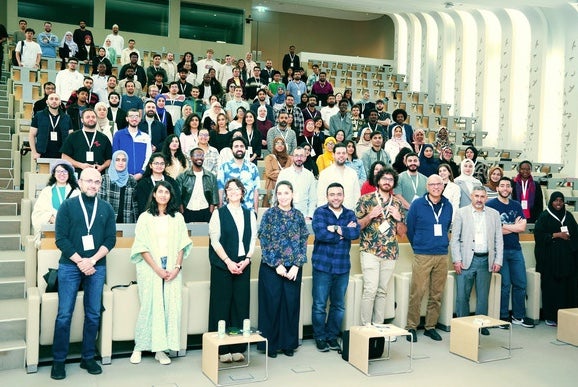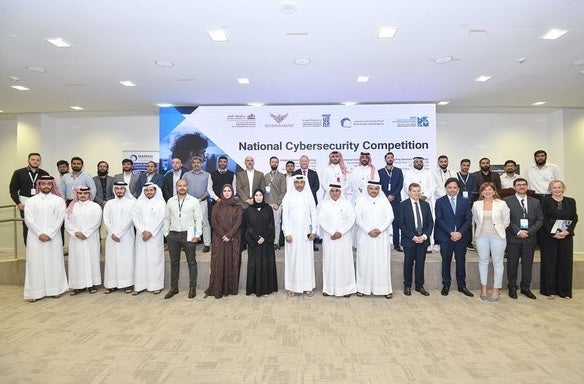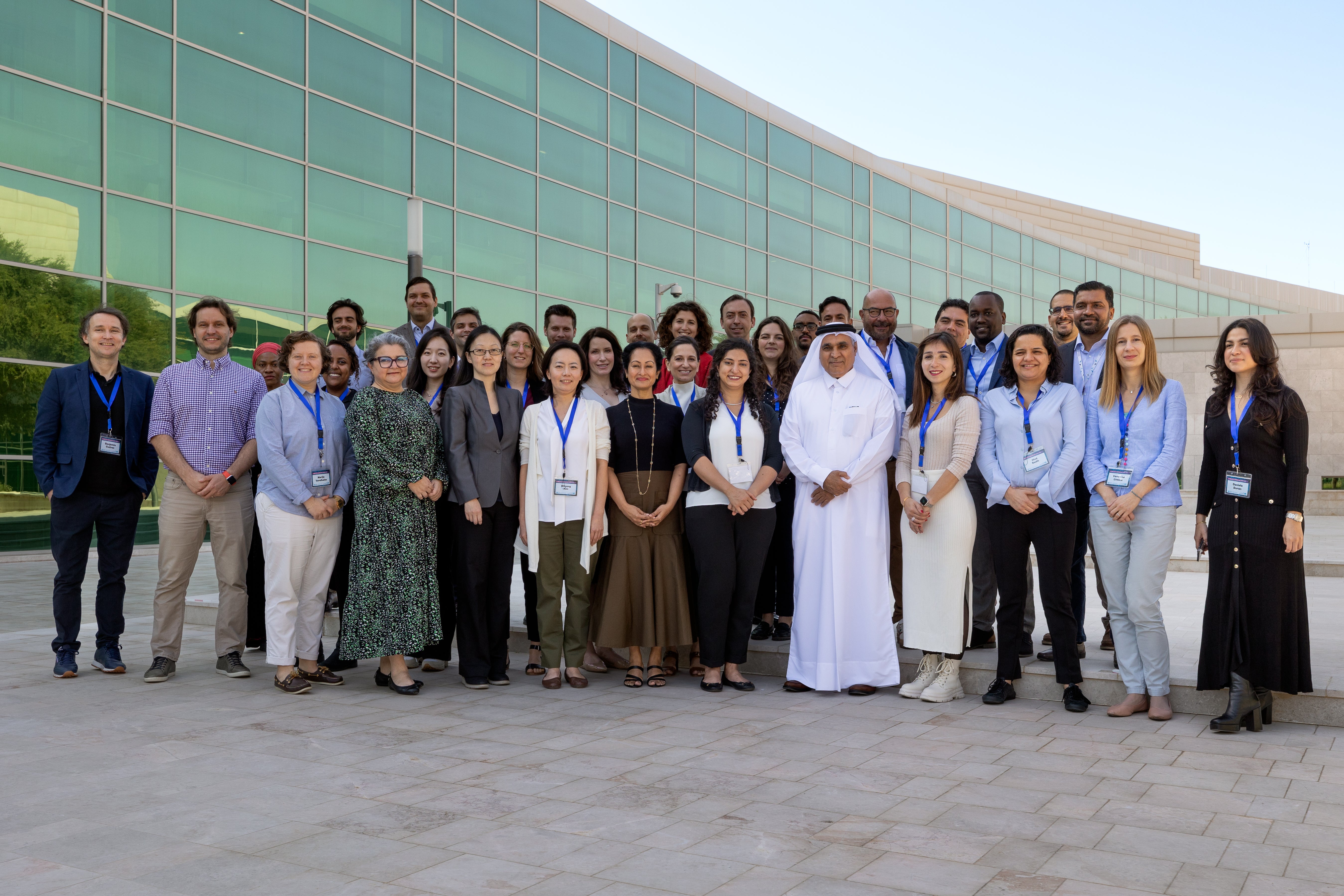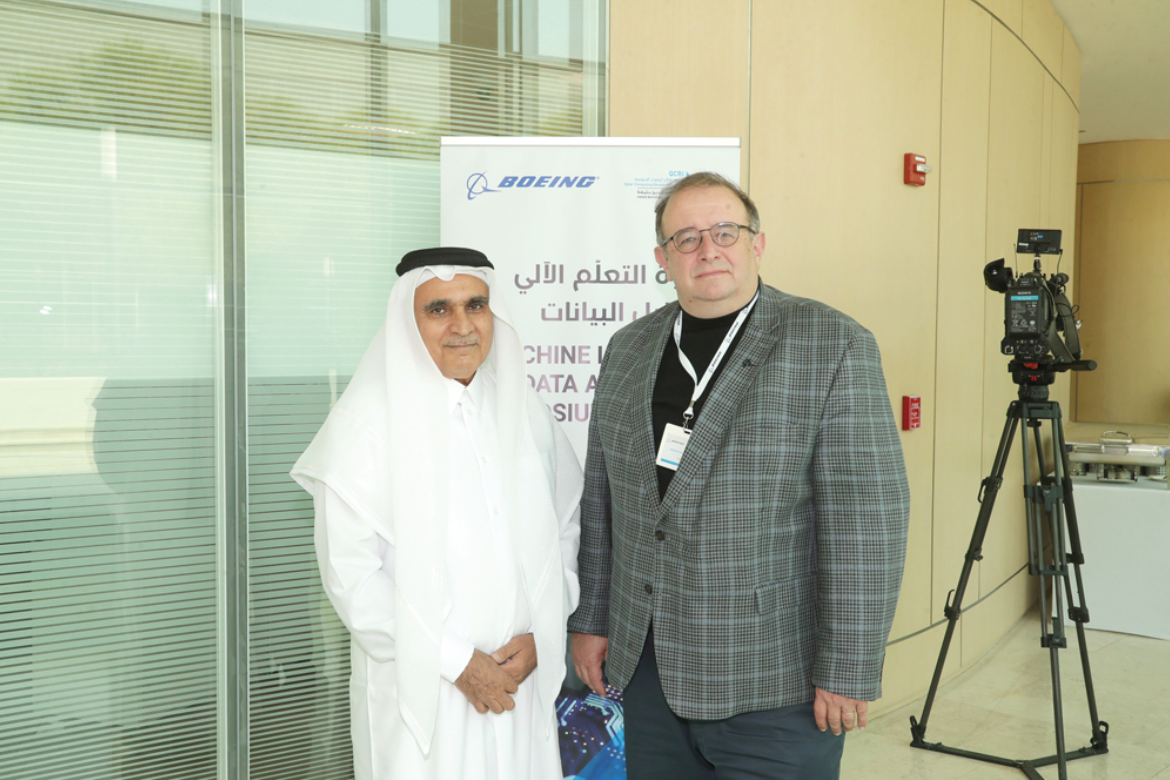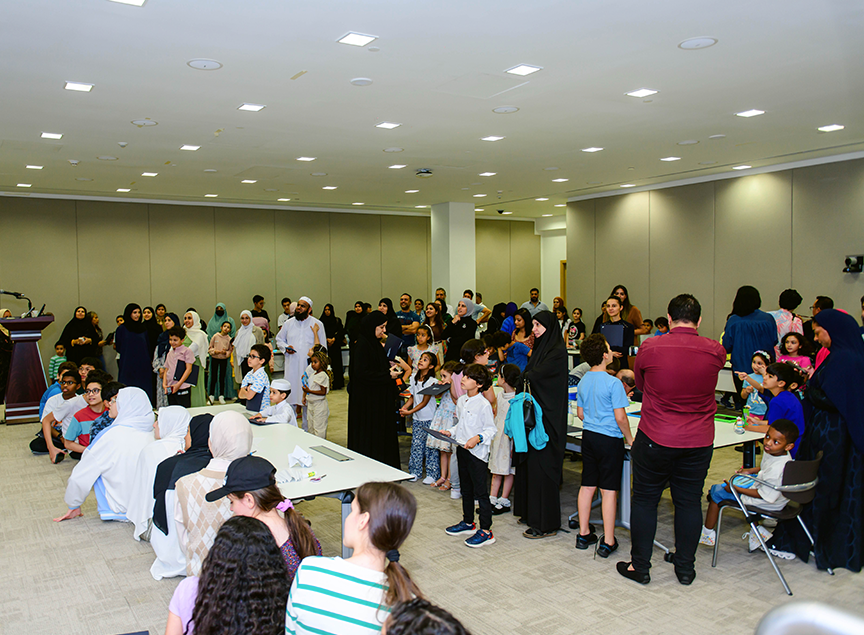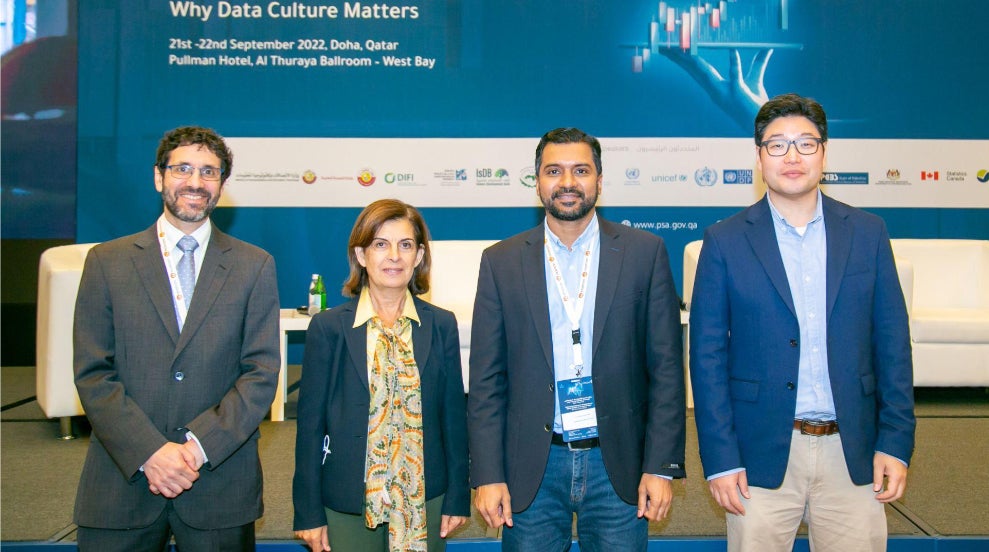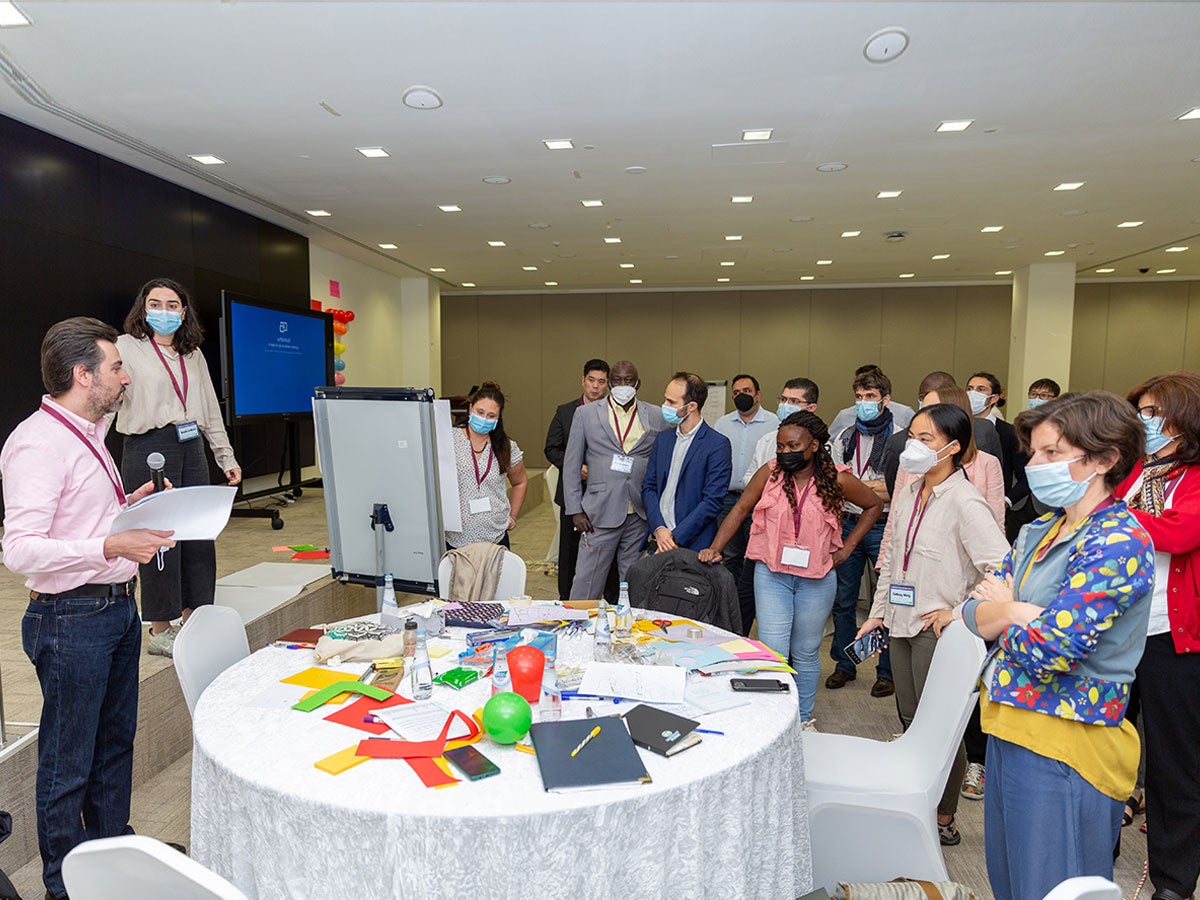
AI Impact on Qatar’s Labor Market: An Assessment
Qatar Computing Research Institute expert analyzes transformative labor market trends and workforce opportunities in light of automation
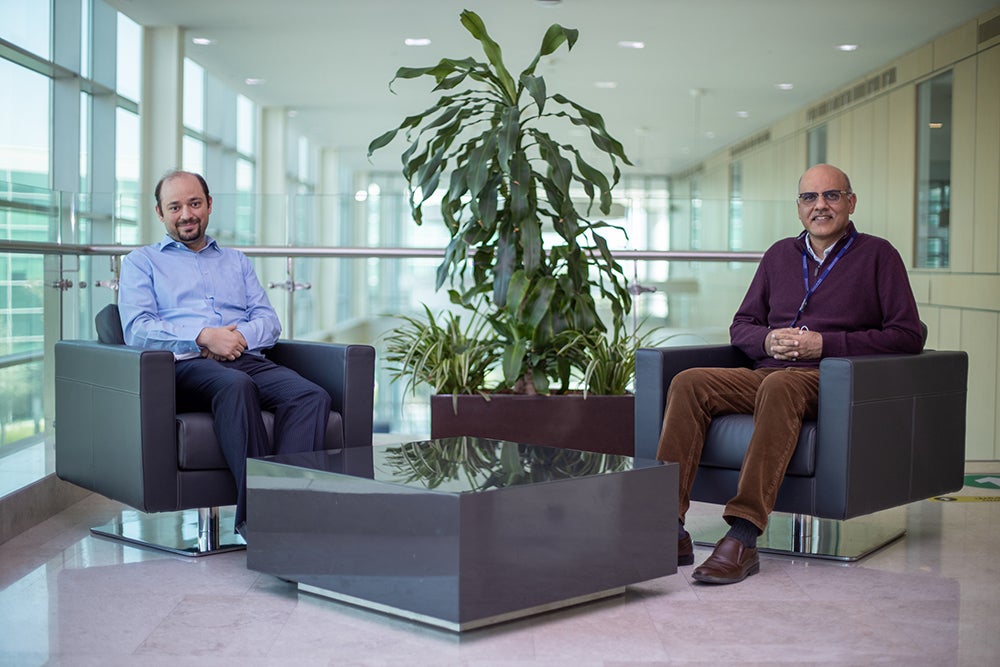
Artificial intelligence (AI) is penetrating all aspects of our daily lives, but to what extent will it have an impact on Qatar’s labor market? This question was central to an innovative study conducted by the Qatar Computing Research Institute (QCRI) at Hamad Bin Khalifa University.
The white paper is one outcome of QCRI’s recently unveiled National Strategy for Artificial Intelligence, a fundamental pillar of which is AI augmentation. The strategy was revealed during QITCOM 2019 and was fully developed with the support of the Ministry of Transport and Communications, through QCRI’s Qatar Center for Artificial Intelligence (QCAI).
The study analyzed over three million US patents and a database on various aspects of most jobs in the US, which was then mapped to the Qatar jobs market using public data from the Planning and Statistics Authority.
AI is not detrimental to economies
According to the report, nearly half (or 46.5%) of all labor tasks in Qatar can benefit from being augmented through pre-existing or pre-patented AI technologies. More specifically, white-collar jobs continue to be most eligible for such transformations. This seemingly substantial proportion of tasks, however, is not likely to be a cause of income inequality in Qatar.
“There are two reasons for this,” said Dr. Sanjay Chawla, the research director of QCAI. “Many Qataris are highly educated and have a university degree and are thus well-positioned to be in roles that can realize the full potential of their education. These roles tend to be more analytical than routine-based tasks and cannot be easily substituted with AI-driven technologies. The expatriate population in Qatar tends to be fast-moving, so long-term economic impact is not likely to be witnessed within this labor force, which continues to consider alternative career pathways.”
The report cites a McKinsey & Company study which suggests that the Middle East’s share from the ongoing AI evolution will be substantive. The study indicates that, as the global economy prepares to reap up to 15.7 trillion USD in AI-driven gains by 2030, the Middle East’s share will equate to nearly 320 billion USD. To achieve this goal in the region, certain sectors need to critique and re-examine their ways of work.
Most notably, the paper suggests that eight sectors across government and defense; finance and insurance; information and communication; scientific and technical; health and social work; oil and gas; and education have the highest AI augmentation potential.
“QCAI’s study is based on an analysis of various personas and uses real-life examples to show how jobs can be impacted” said Dr. Amin Sadeghi, a scientist at QCAI and a co-author of the study. “If we take, for example, data collection as a task that is now led by humans. This is a task that can require extensive labor yet can also be tedious. It is therefore also a task that can benefit from automation. But to complement this course of action, people also need to be trained to think strategically, interact with technology, and be more judicious about how to use the technology. Upskilling is an important and inevitable outcome of this process.”
AI enables workforce advancement
AI-driven technologies are often misunderstood to be an impediment of job creation. But in reality, history has shown that AI can be a catalyst of labor-market development.
“Education is a sector that can massively benefit from the AI transition. The ongoing shift towards personalized learning is both real and necessary. Educators who can generate tailor-made learning experiences and comprehend, analyze, and utilize feedback from student interactions are likely to be more in demand. This holds especially true in Qatar, given the substantial investments in a world-class educational infrastructure,” said Dr. Chawla.
QCRI’s research group advises that, to achieve the intended goals, Qatar’s work sectors need to adopt a three-pronged approach, starting with building a well-advised, data-centric work culture. To do so, they need to visualize never-before uses for the data they hold, eliminate evident data gaps, and exert all possible efforts to transition to new work mechanisms.
“Data is all around us,” said Dr. Chawla. “But it is also many times misplaced, scattered, and unstructured. We need to be building systems that are AI-compatible and capable of integrating all forms and types of data. The upcoming AI transition will be based on data that is properly collected and managed, which means that the need for a data-driven, evidence-based work culture is of paramount importance.”
COVID-19 has reinforced the value of lifelong learning, the importance of re-imagining our institutions, and the need to drive AI-savvy generations for years to come. But this shift also entails the provision of support to the current workforce as it transitions to a more automated environment.
“QCRI is now developing the AI Together portal,” said Dr. Chawla. “The portal’s primary use is to analyze job descriptions and help users understand each task’s AI augmentation potential. It then proposes (through online learning mechanisms) different routes that users can take to ensure that they are on the correct path to upskilling.”
QCAI was founded in 2018 to support QCRI’s vision of being a global leader of computing research in identified areas that will bring positive impact to the lives of citizens and society of Qatar. The center seeks to raise Qatar’s profile as a global technology innovation hub through groundbreaking and future-oriented research.
For more information about QCAI, visit qcai.qcri.org.
This white paper was led by a research team comprised of Dr. Sanjay Chawla, research director of QCAI; Dr. Amin Sadeghi, a scientist at QCAI; and Ms. Ji Lucas, senior software engineer at QCRI.
Related News

Qatar Computing Research Institute Continues Webinar Series with Focus on COVID-19 Challenges

Qatar Computing Research Institute Webinars Examine Data Exploration and Meta-Data for COVID-19
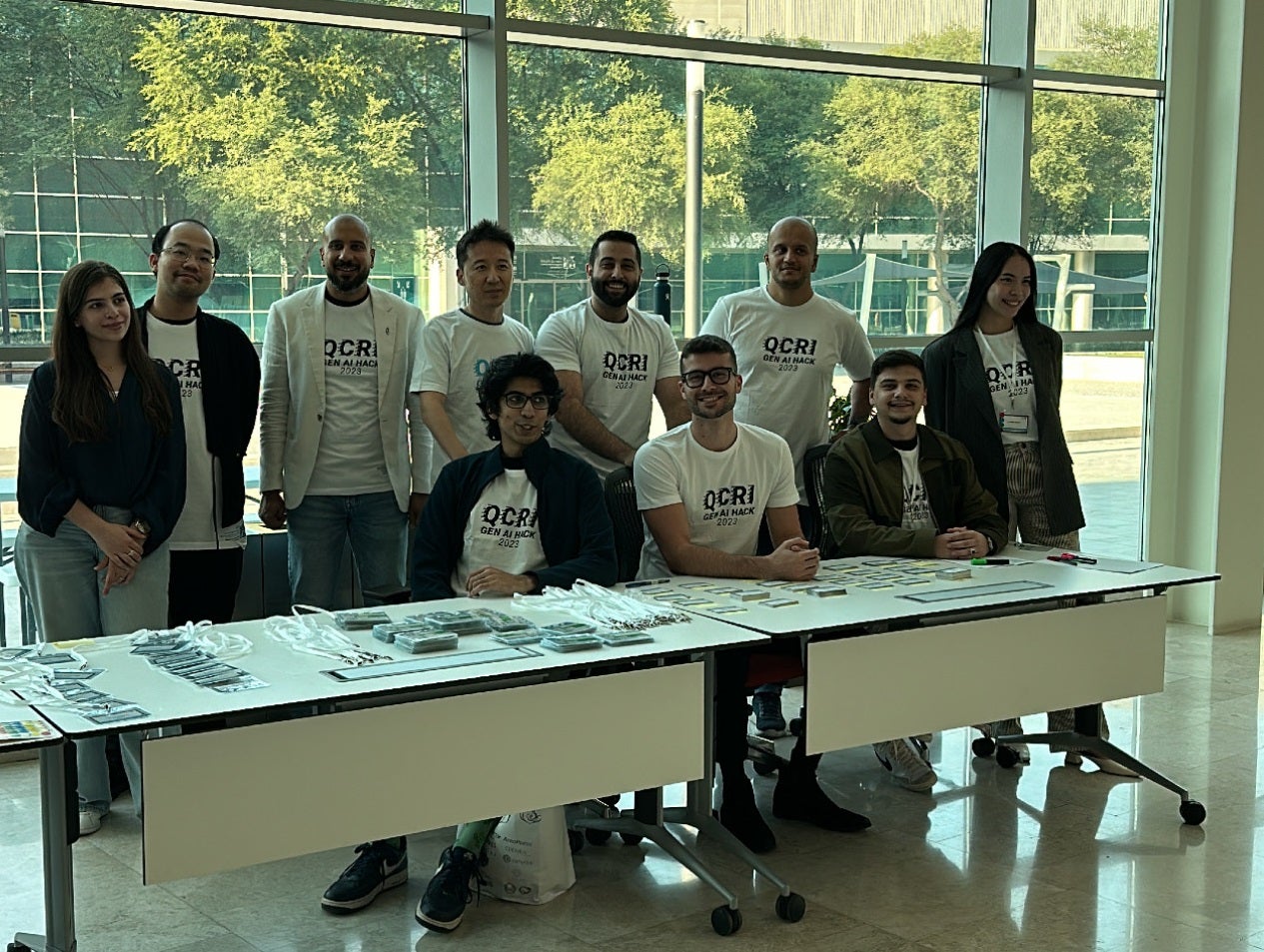
QCRI Generative AI Hackathon Delivers a Showcase of Innovation and Collaboration
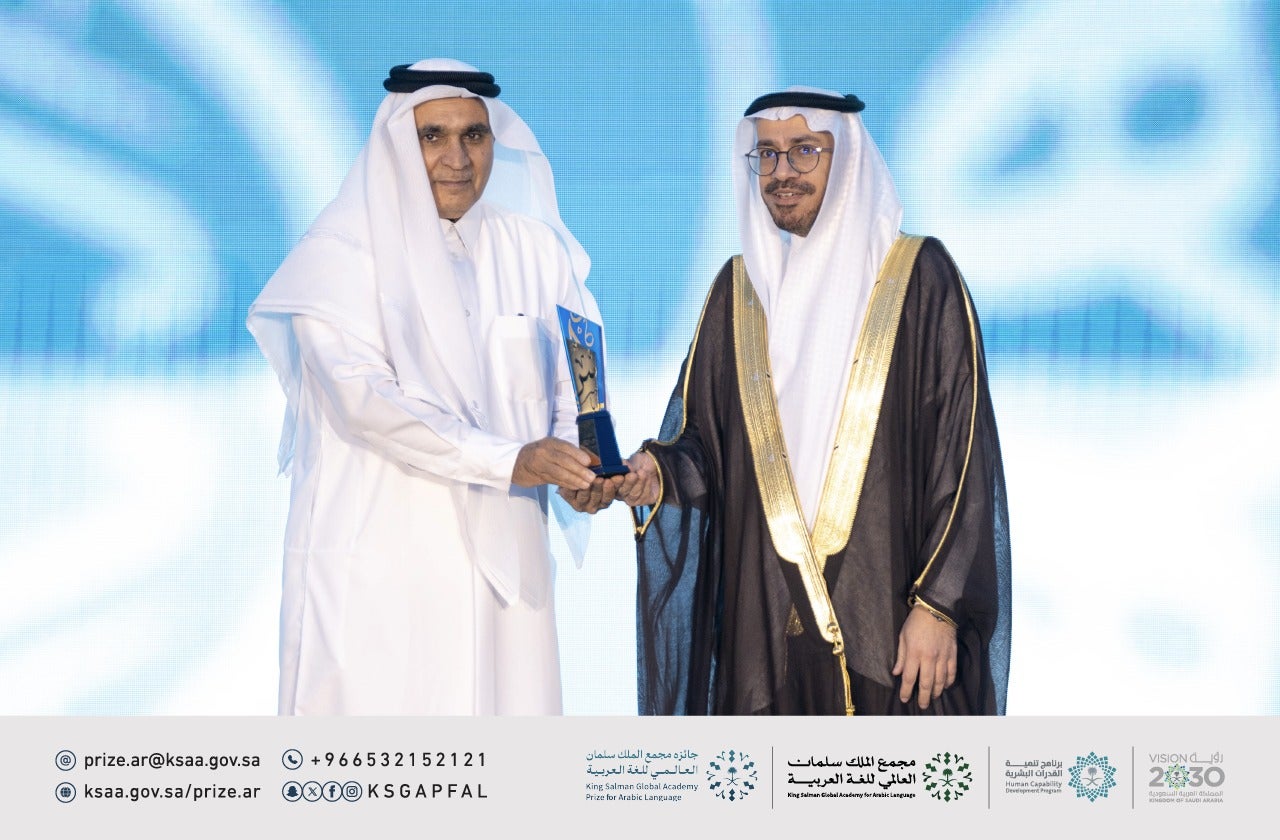
HBKU’s QCRI Receives King Salman International Academy Award for the Arabic Language 2023
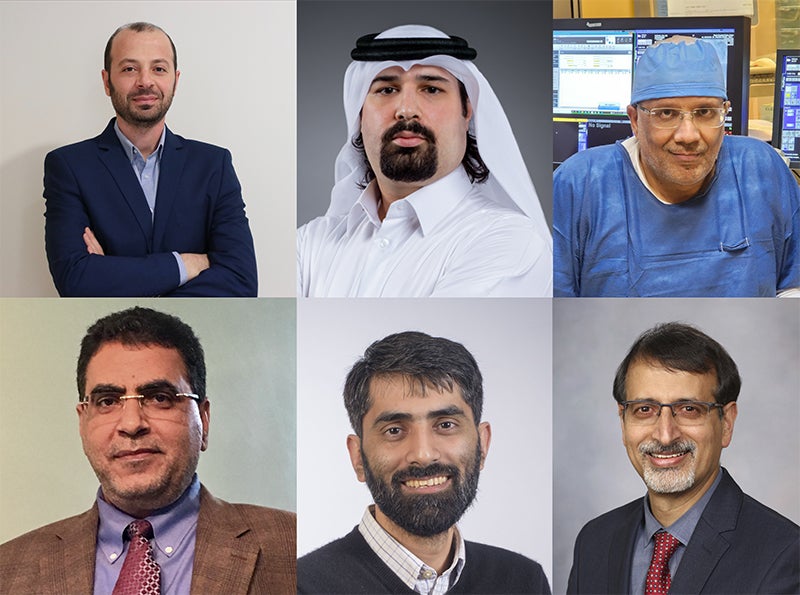
QCRI, HMC and the Mayo Clinic Shed Light on Genomics of Coronary Heart Disease

HBKU’s Qatar Computing Research Institute Concludes Summer Internship Program Online

Qatar Computing Research Institute Continues Webinar Series with Focus on COVID-19 Challenges

Qatar Computing Research Institute Webinars Examine Data Exploration and Meta-Data for COVID-19

QCRI Generative AI Hackathon Delivers a Showcase of Innovation and Collaboration

HBKU’s QCRI Receives King Salman International Academy Award for the Arabic Language 2023

QCRI, HMC and the Mayo Clinic Shed Light on Genomics of Coronary Heart Disease

HBKU’s Qatar Computing Research Institute Concludes Summer Internship Program Online

Qatar Computing Research Institute Continues Webinar Series with Focus on COVID-19 Challenges

Qatar Computing Research Institute Webinars Examine Data Exploration and Meta-Data for COVID-19

QCRI Generative AI Hackathon Delivers a Showcase of Innovation and Collaboration

HBKU’s QCRI Receives King Salman International Academy Award for the Arabic Language 2023

QCRI, HMC and the Mayo Clinic Shed Light on Genomics of Coronary Heart Disease

HBKU’s Qatar Computing Research Institute Concludes Summer Internship Program Online

Qatar Computing Research Institute Continues Webinar Series with Focus on COVID-19 Challenges

Qatar Computing Research Institute Webinars Examine Data Exploration and Meta-Data for COVID-19

QCRI Generative AI Hackathon Delivers a Showcase of Innovation and Collaboration

HBKU’s QCRI Receives King Salman International Academy Award for the Arabic Language 2023

QCRI, HMC and the Mayo Clinic Shed Light on Genomics of Coronary Heart Disease

HBKU’s Qatar Computing Research Institute Concludes Summer Internship Program Online

Qatar Computing Research Institute Continues Webinar Series with Focus on COVID-19 Challenges

Qatar Computing Research Institute Webinars Examine Data Exploration and Meta-Data for COVID-19

QCRI Generative AI Hackathon Delivers a Showcase of Innovation and Collaboration

HBKU’s QCRI Receives King Salman International Academy Award for the Arabic Language 2023

QCRI, HMC and the Mayo Clinic Shed Light on Genomics of Coronary Heart Disease

HBKU’s Qatar Computing Research Institute Concludes Summer Internship Program Online

Qatar Computing Research Institute Continues Webinar Series with Focus on COVID-19 Challenges

Qatar Computing Research Institute Webinars Examine Data Exploration and Meta-Data for COVID-19

QCRI Generative AI Hackathon Delivers a Showcase of Innovation and Collaboration

HBKU’s QCRI Receives King Salman International Academy Award for the Arabic Language 2023

QCRI, HMC and the Mayo Clinic Shed Light on Genomics of Coronary Heart Disease

HBKU’s Qatar Computing Research Institute Concludes Summer Internship Program Online

Qatar Computing Research Institute Continues Webinar Series with Focus on COVID-19 Challenges

Qatar Computing Research Institute Webinars Examine Data Exploration and Meta-Data for COVID-19

QCRI Generative AI Hackathon Delivers a Showcase of Innovation and Collaboration

HBKU’s QCRI Receives King Salman International Academy Award for the Arabic Language 2023

QCRI, HMC and the Mayo Clinic Shed Light on Genomics of Coronary Heart Disease

HBKU’s Qatar Computing Research Institute Concludes Summer Internship Program Online

Qatar Computing Research Institute Continues Webinar Series with Focus on COVID-19 Challenges

Qatar Computing Research Institute Webinars Examine Data Exploration and Meta-Data for COVID-19

QCRI Generative AI Hackathon Delivers a Showcase of Innovation and Collaboration

HBKU’s QCRI Receives King Salman International Academy Award for the Arabic Language 2023

QCRI, HMC and the Mayo Clinic Shed Light on Genomics of Coronary Heart Disease

HBKU’s Qatar Computing Research Institute Concludes Summer Internship Program Online

Qatar Computing Research Institute Continues Webinar Series with Focus on COVID-19 Challenges

Qatar Computing Research Institute Webinars Examine Data Exploration and Meta-Data for COVID-19

QCRI Generative AI Hackathon Delivers a Showcase of Innovation and Collaboration

HBKU’s QCRI Receives King Salman International Academy Award for the Arabic Language 2023

QCRI, HMC and the Mayo Clinic Shed Light on Genomics of Coronary Heart Disease

HBKU’s Qatar Computing Research Institute Concludes Summer Internship Program Online

Qatar Computing Research Institute Continues Webinar Series with Focus on COVID-19 Challenges

Qatar Computing Research Institute Webinars Examine Data Exploration and Meta-Data for COVID-19

QCRI Generative AI Hackathon Delivers a Showcase of Innovation and Collaboration

HBKU’s QCRI Receives King Salman International Academy Award for the Arabic Language 2023

QCRI, HMC and the Mayo Clinic Shed Light on Genomics of Coronary Heart Disease

HBKU’s Qatar Computing Research Institute Concludes Summer Internship Program Online

Qatar Computing Research Institute Continues Webinar Series with Focus on COVID-19 Challenges

Qatar Computing Research Institute Webinars Examine Data Exploration and Meta-Data for COVID-19

QCRI Generative AI Hackathon Delivers a Showcase of Innovation and Collaboration

HBKU’s QCRI Receives King Salman International Academy Award for the Arabic Language 2023

QCRI, HMC and the Mayo Clinic Shed Light on Genomics of Coronary Heart Disease

HBKU’s Qatar Computing Research Institute Concludes Summer Internship Program Online

Qatar Computing Research Institute Continues Webinar Series with Focus on COVID-19 Challenges

Qatar Computing Research Institute Webinars Examine Data Exploration and Meta-Data for COVID-19

QCRI Generative AI Hackathon Delivers a Showcase of Innovation and Collaboration

HBKU’s QCRI Receives King Salman International Academy Award for the Arabic Language 2023

QCRI, HMC and the Mayo Clinic Shed Light on Genomics of Coronary Heart Disease

HBKU’s Qatar Computing Research Institute Concludes Summer Internship Program Online

Qatar Computing Research Institute Continues Webinar Series with Focus on COVID-19 Challenges

Qatar Computing Research Institute Webinars Examine Data Exploration and Meta-Data for COVID-19

QCRI Generative AI Hackathon Delivers a Showcase of Innovation and Collaboration

HBKU’s QCRI Receives King Salman International Academy Award for the Arabic Language 2023

QCRI, HMC and the Mayo Clinic Shed Light on Genomics of Coronary Heart Disease

HBKU’s Qatar Computing Research Institute Concludes Summer Internship Program Online

Qatar Computing Research Institute Continues Webinar Series with Focus on COVID-19 Challenges

Qatar Computing Research Institute Webinars Examine Data Exploration and Meta-Data for COVID-19

QCRI Generative AI Hackathon Delivers a Showcase of Innovation and Collaboration

HBKU’s QCRI Receives King Salman International Academy Award for the Arabic Language 2023

QCRI, HMC and the Mayo Clinic Shed Light on Genomics of Coronary Heart Disease

HBKU’s Qatar Computing Research Institute Concludes Summer Internship Program Online

Qatar Computing Research Institute Continues Webinar Series with Focus on COVID-19 Challenges

Qatar Computing Research Institute Webinars Examine Data Exploration and Meta-Data for COVID-19

QCRI Generative AI Hackathon Delivers a Showcase of Innovation and Collaboration

HBKU’s QCRI Receives King Salman International Academy Award for the Arabic Language 2023

QCRI, HMC and the Mayo Clinic Shed Light on Genomics of Coronary Heart Disease

HBKU’s Qatar Computing Research Institute Concludes Summer Internship Program Online

Qatar Computing Research Institute Continues Webinar Series with Focus on COVID-19 Challenges

Qatar Computing Research Institute Webinars Examine Data Exploration and Meta-Data for COVID-19

QCRI Generative AI Hackathon Delivers a Showcase of Innovation and Collaboration

HBKU’s QCRI Receives King Salman International Academy Award for the Arabic Language 2023

QCRI, HMC and the Mayo Clinic Shed Light on Genomics of Coronary Heart Disease

HBKU’s Qatar Computing Research Institute Concludes Summer Internship Program Online

Qatar Computing Research Institute Continues Webinar Series with Focus on COVID-19 Challenges

Qatar Computing Research Institute Webinars Examine Data Exploration and Meta-Data for COVID-19

QCRI Generative AI Hackathon Delivers a Showcase of Innovation and Collaboration

HBKU’s QCRI Receives King Salman International Academy Award for the Arabic Language 2023

QCRI, HMC and the Mayo Clinic Shed Light on Genomics of Coronary Heart Disease

HBKU’s Qatar Computing Research Institute Concludes Summer Internship Program Online

Qatar Computing Research Institute Continues Webinar Series with Focus on COVID-19 Challenges

Qatar Computing Research Institute Webinars Examine Data Exploration and Meta-Data for COVID-19

QCRI Generative AI Hackathon Delivers a Showcase of Innovation and Collaboration

HBKU’s QCRI Receives King Salman International Academy Award for the Arabic Language 2023

QCRI, HMC and the Mayo Clinic Shed Light on Genomics of Coronary Heart Disease

HBKU’s Qatar Computing Research Institute Concludes Summer Internship Program Online

Qatar Computing Research Institute Continues Webinar Series with Focus on COVID-19 Challenges

Qatar Computing Research Institute Webinars Examine Data Exploration and Meta-Data for COVID-19

QCRI Generative AI Hackathon Delivers a Showcase of Innovation and Collaboration

HBKU’s QCRI Receives King Salman International Academy Award for the Arabic Language 2023

QCRI, HMC and the Mayo Clinic Shed Light on Genomics of Coronary Heart Disease

HBKU’s Qatar Computing Research Institute Concludes Summer Internship Program Online

Qatar Computing Research Institute Continues Webinar Series with Focus on COVID-19 Challenges

Qatar Computing Research Institute Webinars Examine Data Exploration and Meta-Data for COVID-19

QCRI Generative AI Hackathon Delivers a Showcase of Innovation and Collaboration

HBKU’s QCRI Receives King Salman International Academy Award for the Arabic Language 2023

QCRI, HMC and the Mayo Clinic Shed Light on Genomics of Coronary Heart Disease

HBKU’s Qatar Computing Research Institute Concludes Summer Internship Program Online

Qatar Computing Research Institute Continues Webinar Series with Focus on COVID-19 Challenges

Qatar Computing Research Institute Webinars Examine Data Exploration and Meta-Data for COVID-19

QCRI Generative AI Hackathon Delivers a Showcase of Innovation and Collaboration

HBKU’s QCRI Receives King Salman International Academy Award for the Arabic Language 2023

QCRI, HMC and the Mayo Clinic Shed Light on Genomics of Coronary Heart Disease

HBKU’s Qatar Computing Research Institute Concludes Summer Internship Program Online

Qatar Computing Research Institute Continues Webinar Series with Focus on COVID-19 Challenges

Qatar Computing Research Institute Webinars Examine Data Exploration and Meta-Data for COVID-19

QCRI Generative AI Hackathon Delivers a Showcase of Innovation and Collaboration

HBKU’s QCRI Receives King Salman International Academy Award for the Arabic Language 2023

QCRI, HMC and the Mayo Clinic Shed Light on Genomics of Coronary Heart Disease

HBKU’s Qatar Computing Research Institute Concludes Summer Internship Program Online

Qatar Computing Research Institute Continues Webinar Series with Focus on COVID-19 Challenges

Qatar Computing Research Institute Webinars Examine Data Exploration and Meta-Data for COVID-19

QCRI Generative AI Hackathon Delivers a Showcase of Innovation and Collaboration

HBKU’s QCRI Receives King Salman International Academy Award for the Arabic Language 2023

QCRI, HMC and the Mayo Clinic Shed Light on Genomics of Coronary Heart Disease

HBKU’s Qatar Computing Research Institute Concludes Summer Internship Program Online

Qatar Computing Research Institute Continues Webinar Series with Focus on COVID-19 Challenges

Qatar Computing Research Institute Webinars Examine Data Exploration and Meta-Data for COVID-19

QCRI Generative AI Hackathon Delivers a Showcase of Innovation and Collaboration

HBKU’s QCRI Receives King Salman International Academy Award for the Arabic Language 2023

QCRI, HMC and the Mayo Clinic Shed Light on Genomics of Coronary Heart Disease

HBKU’s Qatar Computing Research Institute Concludes Summer Internship Program Online

Qatar Computing Research Institute Continues Webinar Series with Focus on COVID-19 Challenges

Qatar Computing Research Institute Webinars Examine Data Exploration and Meta-Data for COVID-19

QCRI Generative AI Hackathon Delivers a Showcase of Innovation and Collaboration

HBKU’s QCRI Receives King Salman International Academy Award for the Arabic Language 2023

QCRI, HMC and the Mayo Clinic Shed Light on Genomics of Coronary Heart Disease

HBKU’s Qatar Computing Research Institute Concludes Summer Internship Program Online

Qatar Computing Research Institute Continues Webinar Series with Focus on COVID-19 Challenges

Qatar Computing Research Institute Webinars Examine Data Exploration and Meta-Data for COVID-19

QCRI Generative AI Hackathon Delivers a Showcase of Innovation and Collaboration

HBKU’s QCRI Receives King Salman International Academy Award for the Arabic Language 2023

QCRI, HMC and the Mayo Clinic Shed Light on Genomics of Coronary Heart Disease

HBKU’s Qatar Computing Research Institute Concludes Summer Internship Program Online

Qatar Computing Research Institute Continues Webinar Series with Focus on COVID-19 Challenges

Qatar Computing Research Institute Webinars Examine Data Exploration and Meta-Data for COVID-19

QCRI Generative AI Hackathon Delivers a Showcase of Innovation and Collaboration

HBKU’s QCRI Receives King Salman International Academy Award for the Arabic Language 2023

QCRI, HMC and the Mayo Clinic Shed Light on Genomics of Coronary Heart Disease

HBKU’s Qatar Computing Research Institute Concludes Summer Internship Program Online

Qatar Computing Research Institute Continues Webinar Series with Focus on COVID-19 Challenges

Qatar Computing Research Institute Webinars Examine Data Exploration and Meta-Data for COVID-19

QCRI Generative AI Hackathon Delivers a Showcase of Innovation and Collaboration

HBKU’s QCRI Receives King Salman International Academy Award for the Arabic Language 2023

QCRI, HMC and the Mayo Clinic Shed Light on Genomics of Coronary Heart Disease

HBKU’s Qatar Computing Research Institute Concludes Summer Internship Program Online

Qatar Computing Research Institute Continues Webinar Series with Focus on COVID-19 Challenges

Qatar Computing Research Institute Webinars Examine Data Exploration and Meta-Data for COVID-19

QCRI Generative AI Hackathon Delivers a Showcase of Innovation and Collaboration

HBKU’s QCRI Receives King Salman International Academy Award for the Arabic Language 2023

QCRI, HMC and the Mayo Clinic Shed Light on Genomics of Coronary Heart Disease

HBKU’s Qatar Computing Research Institute Concludes Summer Internship Program Online

Qatar Computing Research Institute Continues Webinar Series with Focus on COVID-19 Challenges

Qatar Computing Research Institute Webinars Examine Data Exploration and Meta-Data for COVID-19

QCRI Generative AI Hackathon Delivers a Showcase of Innovation and Collaboration

HBKU’s QCRI Receives King Salman International Academy Award for the Arabic Language 2023

QCRI, HMC and the Mayo Clinic Shed Light on Genomics of Coronary Heart Disease

HBKU’s Qatar Computing Research Institute Concludes Summer Internship Program Online

Qatar Computing Research Institute Continues Webinar Series with Focus on COVID-19 Challenges

Qatar Computing Research Institute Webinars Examine Data Exploration and Meta-Data for COVID-19

QCRI Generative AI Hackathon Delivers a Showcase of Innovation and Collaboration

HBKU’s QCRI Receives King Salman International Academy Award for the Arabic Language 2023

QCRI, HMC and the Mayo Clinic Shed Light on Genomics of Coronary Heart Disease

HBKU’s Qatar Computing Research Institute Concludes Summer Internship Program Online

Qatar Computing Research Institute Continues Webinar Series with Focus on COVID-19 Challenges

Qatar Computing Research Institute Webinars Examine Data Exploration and Meta-Data for COVID-19

QCRI Generative AI Hackathon Delivers a Showcase of Innovation and Collaboration

HBKU’s QCRI Receives King Salman International Academy Award for the Arabic Language 2023

QCRI, HMC and the Mayo Clinic Shed Light on Genomics of Coronary Heart Disease

HBKU’s Qatar Computing Research Institute Concludes Summer Internship Program Online

Qatar Computing Research Institute Continues Webinar Series with Focus on COVID-19 Challenges

Qatar Computing Research Institute Webinars Examine Data Exploration and Meta-Data for COVID-19

QCRI Generative AI Hackathon Delivers a Showcase of Innovation and Collaboration

HBKU’s QCRI Receives King Salman International Academy Award for the Arabic Language 2023

QCRI, HMC and the Mayo Clinic Shed Light on Genomics of Coronary Heart Disease

HBKU’s Qatar Computing Research Institute Concludes Summer Internship Program Online

Qatar Computing Research Institute Continues Webinar Series with Focus on COVID-19 Challenges

Qatar Computing Research Institute Webinars Examine Data Exploration and Meta-Data for COVID-19

QCRI Generative AI Hackathon Delivers a Showcase of Innovation and Collaboration

HBKU’s QCRI Receives King Salman International Academy Award for the Arabic Language 2023

QCRI, HMC and the Mayo Clinic Shed Light on Genomics of Coronary Heart Disease

HBKU’s Qatar Computing Research Institute Concludes Summer Internship Program Online

Qatar Computing Research Institute Continues Webinar Series with Focus on COVID-19 Challenges

Qatar Computing Research Institute Webinars Examine Data Exploration and Meta-Data for COVID-19

QCRI Generative AI Hackathon Delivers a Showcase of Innovation and Collaboration

HBKU’s QCRI Receives King Salman International Academy Award for the Arabic Language 2023

QCRI, HMC and the Mayo Clinic Shed Light on Genomics of Coronary Heart Disease

HBKU’s Qatar Computing Research Institute Concludes Summer Internship Program Online

Qatar Computing Research Institute Continues Webinar Series with Focus on COVID-19 Challenges

Qatar Computing Research Institute Webinars Examine Data Exploration and Meta-Data for COVID-19

QCRI Generative AI Hackathon Delivers a Showcase of Innovation and Collaboration

HBKU’s QCRI Receives King Salman International Academy Award for the Arabic Language 2023

QCRI, HMC and the Mayo Clinic Shed Light on Genomics of Coronary Heart Disease

HBKU’s Qatar Computing Research Institute Concludes Summer Internship Program Online

Qatar Computing Research Institute Continues Webinar Series with Focus on COVID-19 Challenges

Qatar Computing Research Institute Webinars Examine Data Exploration and Meta-Data for COVID-19

QCRI Generative AI Hackathon Delivers a Showcase of Innovation and Collaboration

HBKU’s QCRI Receives King Salman International Academy Award for the Arabic Language 2023

QCRI, HMC and the Mayo Clinic Shed Light on Genomics of Coronary Heart Disease

HBKU’s Qatar Computing Research Institute Concludes Summer Internship Program Online

Qatar Computing Research Institute Continues Webinar Series with Focus on COVID-19 Challenges

Qatar Computing Research Institute Webinars Examine Data Exploration and Meta-Data for COVID-19

QCRI Generative AI Hackathon Delivers a Showcase of Innovation and Collaboration

HBKU’s QCRI Receives King Salman International Academy Award for the Arabic Language 2023

QCRI, HMC and the Mayo Clinic Shed Light on Genomics of Coronary Heart Disease

HBKU’s Qatar Computing Research Institute Concludes Summer Internship Program Online

Qatar Computing Research Institute Continues Webinar Series with Focus on COVID-19 Challenges

Qatar Computing Research Institute Webinars Examine Data Exploration and Meta-Data for COVID-19

QCRI Generative AI Hackathon Delivers a Showcase of Innovation and Collaboration

HBKU’s QCRI Receives King Salman International Academy Award for the Arabic Language 2023

QCRI, HMC and the Mayo Clinic Shed Light on Genomics of Coronary Heart Disease

HBKU’s Qatar Computing Research Institute Concludes Summer Internship Program Online

Qatar Computing Research Institute Continues Webinar Series with Focus on COVID-19 Challenges

Qatar Computing Research Institute Webinars Examine Data Exploration and Meta-Data for COVID-19

QCRI Generative AI Hackathon Delivers a Showcase of Innovation and Collaboration

HBKU’s QCRI Receives King Salman International Academy Award for the Arabic Language 2023

QCRI, HMC and the Mayo Clinic Shed Light on Genomics of Coronary Heart Disease

HBKU’s Qatar Computing Research Institute Concludes Summer Internship Program Online

Qatar Computing Research Institute Continues Webinar Series with Focus on COVID-19 Challenges







